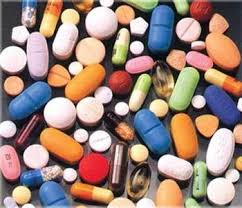Substances that have a noticeable impact on mood, perception, or thought are called psychoactive drugs. Different psychoactive drugs have different effects, but they all work by altering chemical events in the brain. Many psychoactive drugs are chemically similar to certain neurotransmitters in the brain. Some of these drugs exert their effects by attaching themselves to receptor neurons and mimicking the brain’s own neurotransmitters. Others produce chemical reactions that either stimulate or inhibit the production of neurotransmitters.
Types Of Psychoactive Drugs.
We will classify the hundreds of consciousness altering drugs into three broad categories: depressants, stimulants, and psychogenics.
Depressants
Depressants are drugs that slow bodily processes, calm nervous-system activicy, and induce sleep. Most people are familiar with the most widely used depressant, alcohol. Others include barbiturates, tranquilizers, and oplates.
Barbiturates Drugs
Barbiturates like Seconal and Phenobarbital are prescription drugs that help people sleep when taken on a short-term basis. They are often used recreation ally (to achieve a “high”) because they tend to suppress inhibitions. In large doses, however, barbiturates can impair memory, distort judgment, and even kill.
The combination of alcohol and barbiturates is especially lethal because their interaction has a more potent depressant effect than does either drug taken separately. Barbiturates are the most commonly abused drugs, except for alcohol. They account for more deaths than all other psychoactive drugs combined.
Tranquilizers are Prescription Drugs
Tranquilizers are prescription drugs that depress the nervous system but with- out the sedative (sleep-causing) effects of barbiturates. They are commonly used to relieve anxiety (in the case of minor tranquilizers, such as Valium and Librium) or to manage psychotic symptoms such as hallucinations and delusions (major tranquilizers, such as Thorazine). Overdoses of minor tranquilizers are not likely to be lethal, but these drugs are physically addicting and frequently abused, especially by people trying to relieve day-to-day anxiety.
The Opiates And Narcotics Drugs
The opiates, or narcotics, include opium, morphine, heroin, and methadone. These pain-relieving drugs produce warm, peaceful, worry-free feelings, and people take them to obtain these effects. But the opiates, especially heroin, produce rapid addiction: the body becomes physically dependent on the drug. Heroin addicts continually crave the next fix and experience tormenting withdrawal symptoms when the drug is not available: sweating, vomiting, cramps, diarrhea. An additional risk for opiate users is the possibility of contracting AIDS from shared needles contaminated with the blood of other users. In fact, heroin users and their sexual partners are the fastest-growing group of AIDS victims.
Stimulants Drugs
Caffeine and nicotine are two legal (and addictive) stimulants used by millions of Americans. Other stimulants include amphetamines and cocaine. Amphetamines are used both legally and illegally to stay awake, improve mood, and lose weight. They can be physically addictive (though not as easily as depressants), and withdrawal is accompanied by depression, irritability, headaches, and intense fatigue. Among stimulants obtained illegally, co- Caine is by far the most dangerous and most widely abused.
The Psychogenic drugs
The psychogenic drugs, also called hallucinogens, include ISD, mescaline, psilocybin, and marijuana. These drugs open the floodgates of brain activity, deluging the user with internally generated perceptions, including colors, odors, and sounds, and with greatly intensified experiences of the outside world. The most widely used psychogenic drug is marijuana.

